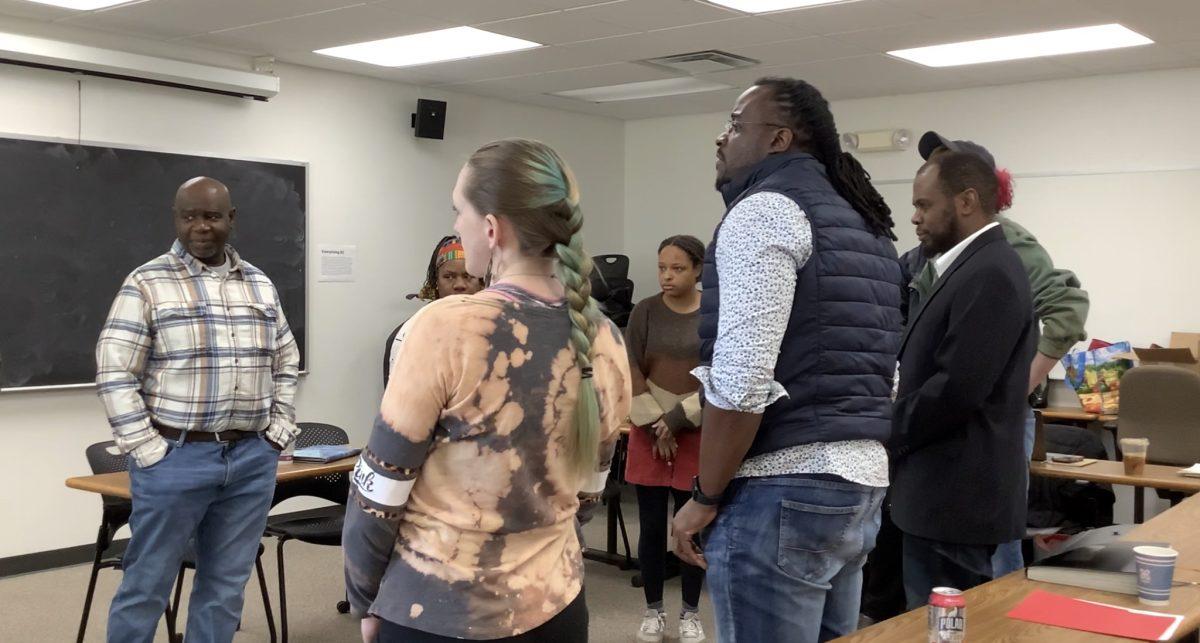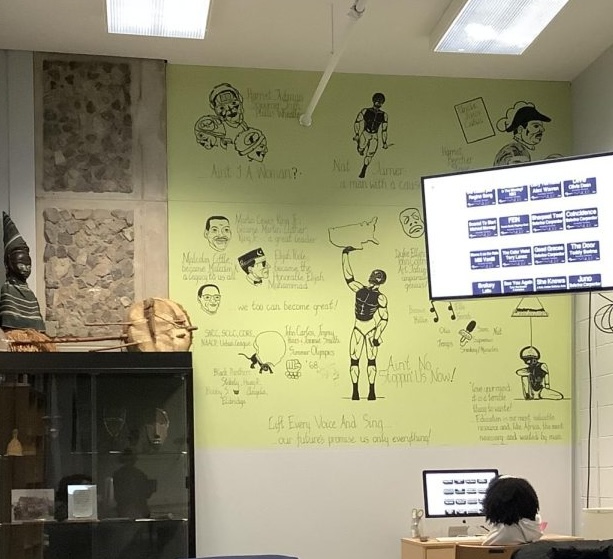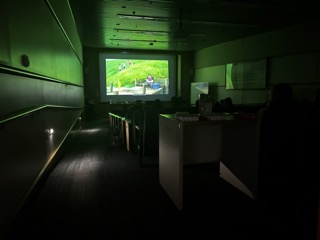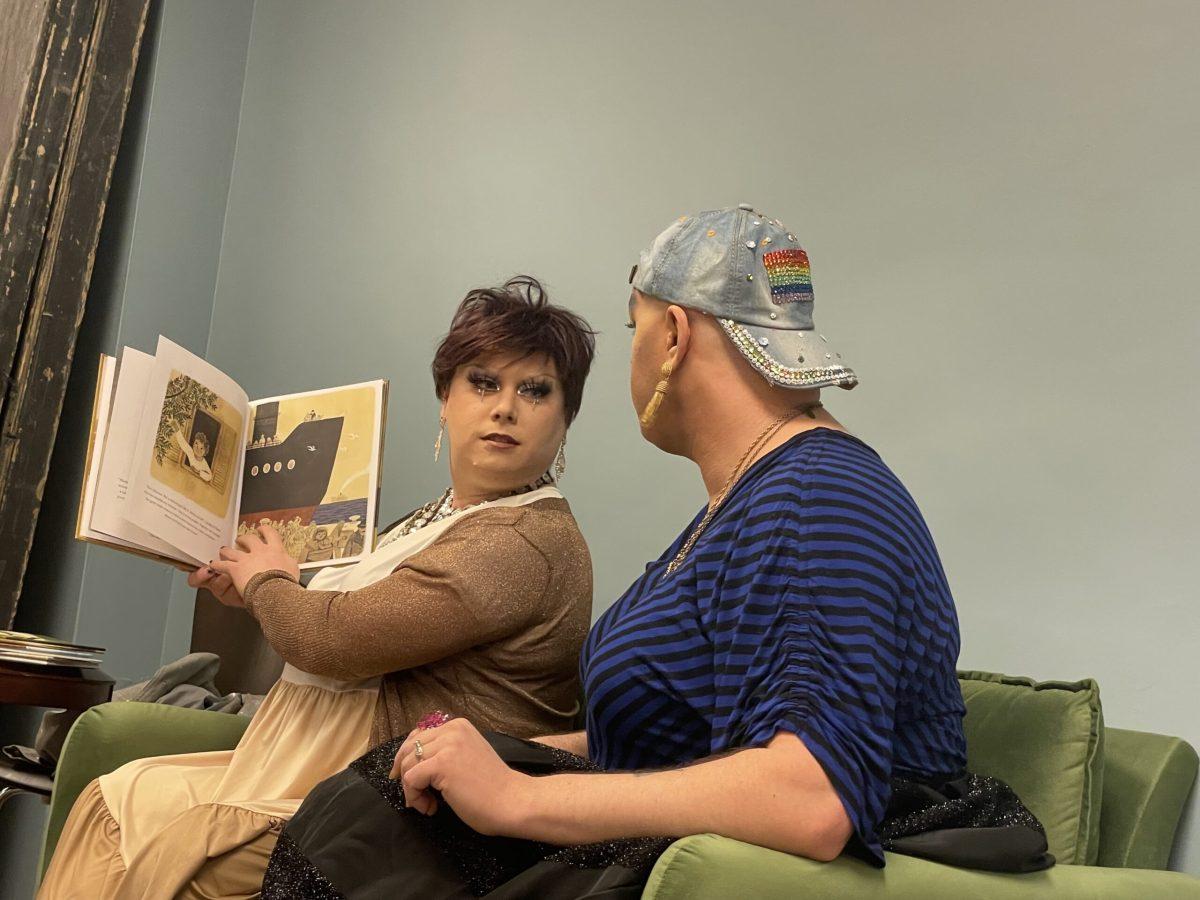
Ari Cummings arrives to the fourth floor room of Flight Performing Arts for his 4 p.m. voice lesson. After Cummings says “hello” to Sharon Costianes, director of the arts center, he informs her that he’s been sick the past few days. Costianes shows her concern by asking what his symptoms have been, then tells him the most important thing is to keep himself and his voice healthy.
This voice lesson does not include much vocal training, instead Costianes has Cummings, a senior at Ithaca High School, talk through the emotion of the two songs he’s preparing for college auditions. Throughout the lesson she reminds him to practice self-care and that performing is a marathon.
“Reinforce the muscle memory without fatiguing the voice,” Costianes tells Cummings.
Flight Performing Arts opened Sept. 20, in downtown Ithaca, with a different approach to the arts than most studios. The studio offers acting, singing and dancing lessons but takes a holistic approach — focusing on limiting injury to the body and looking at performers as people first.
“The cohesive philosophy for me with Flight is about wellness and about sustainability, both for the physical production of our singing, acting, our dancing but also looking at our students as whole human beings and all the things that it takes to go out there and do the work of a performer,” Costianes said.
Because of the constant use of their voice, singers can be susceptible to a number of vocal injuries including nodes, polyps, cysts, vocal tremor, and strain on the diaphragm, according to the Musicians and Performing Arts Injury Clinic.
“Belting is intense, it’s hard on our instruments and that’s the job when you’re in musical theater,” Costianes said. “Learning to do that in a way that isn’t so taxing is huge because then you’re not dealing with injury but it also means you can work more.”
Vocal cord paralysis is common in singers and can be a result of irregular use of the nerves that control your voice box according to ENT Health. Even a mild case has the possibility to end a singer’s career.
Viewing performance through a lens of wellness comes from Costianes’ background as a certified Feldenkrais practitioner. The Feldenkrais Method of exercise therapy takes an approach that “uses gentle movement and directed attention to help people learn new and more effective ways of living the life they want,” according to the Feldenkrais website. The method is said to increase mobility enhance thinking and improve flexibility.

Costianes said she has become known as the person to rehabilitate poor vocal technique.
Voice student Jasper Fearon said Costianes has provided him with tools to keep his voice healthy and know when his voice is fatigued.
“The biggest thing she’s given me is the ability to think of my voice critically. Being able to catch myself when I’m fatigued and starting to lose the ability to sing healthily and stop myself there rather than push through it,” Fearon said.
He pointed out that she has also given him the “tools to be able to warm up correctly and do what your voice needs.”
Fearon’s training with Costianes has also allowed him to notice vocal damage and bad technique when listening to other singers.
“When you see a singer, you can tell right off the bat if they’re singing healthily or not. There are vocal and physical tells, you can hear the tension in their voice… that person is already hurting themselves,” Fearon said.
Costianes believes her technique would make anyone in the arts kinder, not only to their own bodies, but also to one another.

















